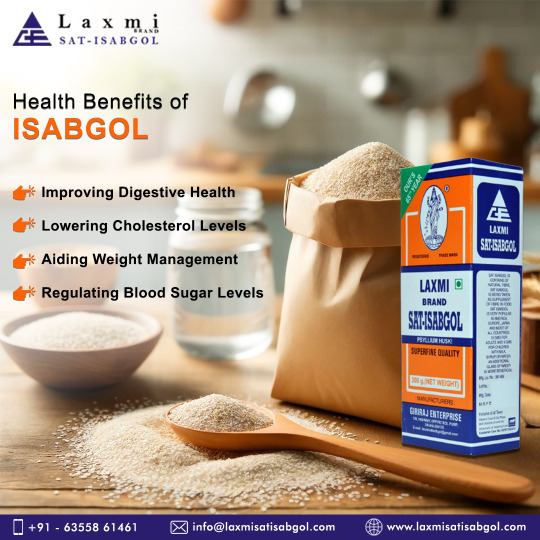#BloodSugarLevels
Text
youtube
Maintaining healthy blood sugar levels is essential for overall well-being, and various supplements on the market claim to offer support in this regard. GlucoTrust is one such supplement that aims to assist individuals in managing their blood sugar levels, promoting more effortless weight loss, and supporting liver health.
#BloodSugarLevels#SupportHealthyBloodSugarLevels#LiverCleanseBreakthrough#easierweightloss#FatBurning#GreenSmoothieRecipes#easiertoloseweight#healthybloodflow#Reducingsugarandjunkfoodcravings#restorehealthybloodsugarlevels#metabolizecarbs#fatsandproteins#GlucoTrustcapsule#promoteshealthyhairandskin#supportingliver#eyesightandnervoussystem#glucotrustreview#glucotrustreviews#glucotrustsupplement#glucotrustsupplementreview#glucotrustcapsule#bloodsugarglucotrustreview#glucotrustweightloss#glucotrustpills blood sugar#glucotrustbloodsugar#Youtube
0 notes
Text

Unlock a healthier you with Isabgol! From improving digestive health to managing weight and regulating blood sugar levels, Isabgol is your all-in-one solution for wellness. Lower your cholesterol and boost your health naturally!
For more details, visit- https://laxmisatisabgol.com/advantages-and-considerations-of-psyllium-husk-isabgol/
#laxmisatisabgol#isabgol#psylliumhusk#digestivehealth#loweringcholestrollevel#weightmanagement#bloodsugarlevels#NaturalHealth#healthbooster
0 notes
Text
Managing Type II Diabetes Naturally: A Comprehensive Review of the Blood Sugar Formula
Introduction:
In the battle against Type II diabetes, maintaining healthy blood sugar levels is paramount. While medication is often necessary, many individuals seek natural supplements to complement their treatment regimen. Enter the Blood Sugar Formula, a 100% natural solution designed to support healthy blood sugar levels and aid in weight loss for both men and women living with Type II diabetes. In this article, we'll explore the benefits, ingredients, and expert opinions surrounding this innovative supplement.
Understanding the Blood Sugar Formula:
This 100% Natural Healthy blood sugar levels and weight loss for men and women who have Type II diabetes is at the heart of the Blood Sugar Formula. Crafted with precision and care, this supplement harnesses the power of nature's finest ingredients to offer a holistic approach to diabetes management. Inside each capsule, you'll find a blend of herbs, vitamins, and minerals carefully selected for their ability to regulate blood sugar levels and support weight loss in individuals with Type II diabetes.
Benefits of the Blood Sugar Formula:
Blood Sugar Regulation: The key ingredients in the Blood Sugar Formula work synergistically to help maintain stable blood sugar levels throughout the day, reducing the risk of spikes and crashes commonly experienced by those with Type II diabetes.
Weight Management: Excess weight can exacerbate diabetes symptoms and complicate management efforts. This supplement aids in weight loss by promoting fat metabolism and curbing appetite, making it easier for individuals to achieve and maintain a healthy weight.
Enhanced Energy Levels: By stabilizing blood sugar levels and supporting efficient energy production, the Blood Sugar Formula helps combat fatigue and lethargy often associated with diabetes.
Cardiovascular Health: Diabetes is a major risk factor for heart disease. The Blood Sugar Formula contains ingredients known to support cardiovascular health, such as chromium and cinnamon, further reducing the risk of complications associated with diabetes.
Frequently Asked Questions about the Blood Sugar Formula:
Q: Is the Blood Sugar Formula safe for individuals with Type II diabetes?
A: Yes, the Blood Sugar Formula is specifically formulated for individuals with Type II diabetes and is generally safe for use. However, it's always advisable to consult with a healthcare professional before starting any new supplement regimen, especially if you have pre-existing medical conditions or are taking other medications.
Q: How long does it take to see results?
A: Results may vary depending on individual factors such as diet, exercise, and overall health status. Some users may experience improvements in blood sugar levels and weight loss within a few weeks of consistent use, while others may require longer to notice significant changes.
Q: Can the Blood Sugar Formula replace my diabetes medication?
A: The Blood Sugar Formula is not intended to replace prescribed medication for diabetes. Instead, it should be used as a complementary therapy alongside existing treatment regimens. Always follow the advice of your healthcare provider regarding medication management.
Q: Are there any side effects associated with the Blood Sugar Formula?
A: The Blood Sugar Formula is made from natural ingredients and is generally well-tolerated. However, some individuals may experience mild side effects such as gastrointestinal discomfort or allergic reactions. If you experience any adverse reactions, discontinue use and consult with a healthcare professional.
Doctor's Opinion on the Blood Sugar Formula:
Dr. Sarah Johnson, a leading endocrinologist, shares her insights on the Blood Sugar Formula:
"As an endocrinologist specializing in diabetes management, I'm always cautious when it comes to recommending supplements to my patients. However, the Blood Sugar Formula stands out for its evidence-based approach and comprehensive blend of ingredients. I often recommend it to individuals with Type II diabetes who are looking for natural ways to support their blood sugar control and weight management efforts. When used in conjunction with a healthy diet and regular exercise, it can be a valuable addition to a comprehensive diabetes management plan."
Conclusion:
Managing Type II diabetes requires a multifaceted approach that includes medication, lifestyle modifications, and sometimes, natural supplements like the Blood Sugar Formula. With its unique blend of herbs, vitamins, and minerals, this supplement offers a safe and effective way to support healthy blood sugar levels and aid in weight loss for individuals with Type II diabetes. While it's not a substitute for medical treatment, it can be a valuable tool in the ongoing effort to manage diabetes and improve overall health and well-being.
#BloodSugar#BloodSugarLevels#HealthyLiving#BloodSugarControl#Diabetes#HealthyLifestyle#BloodSugarSupport#BloodSugarBalance#HealthTips#Wellness#BloodSugarFormula#BloodSugarManagement#NaturalRemedies#Healthcare#NutritionTips
0 notes
Text
New Health Risks from Energy Drinks | livefitforever
Energy drinks effects on body: If you still believe that energy drinks share the same benefits and they are as good as drinking coffee or soda, then be cautious because you are defying what research is saying. Yes, it is a fact. According to a small research study, the surge created by the consumption of energy drinks can alter heart rhythm and cause your blood pressure to remain high (long-lasting increase in blood pressure) and surge in blood sugar levels – which may over time lead to diabetes.
#energy drinks#health risks#heart rhythm#blood pressure#blood sugar levels#diabetes#energydrinksideeffects#healthrisks#cardiovascularhealth#bloodsugarlevels#researchinsights#Personalized Solutions#LiveFit4Ever
0 notes
Text
Sugar Defender Review
- Sugar Defender Does it work?
Yes, Sugar Defender Works, Sugar Defender is evidenced by the positive reports from thousands of people who say they have experienced remarkable benefits in safely controlling blood sugar levels and losing weight. This supplement promises a convenient, quick and easy approach, enabling individuals to achieve these goals from the comfort of their homes. Sugar Defender's unique formula, consisting of a careful selection of natural ingredients, appears to be the secret behind its success, offering a comprehensive solution to improving metabolic health.. And remember that the product has a 60-day guarantee or your money back. So there is no risk
- Sugar Defender Benefits?
Sugar Defender helps normalize blood sugar levels.
Sugar Defender helps the user fall asleep easily and stay awake when needed.
Sugar Defender aids weight loss by suppressing cravings and appetite.
There are no adverse effects because the supplement is made of natural substances, such as olive oil, safe for the body.
The substances have been properly evaluated before being added to the formula.
It promotes deep sleep.
It promotes healthy eating habits.
It helps keep blood sugar levels in the normal range.
It promotes natural weight loss by suppressing appetite and food cravings.
It contains no harmful or chemical ingredients and is entirely natural.
The elements in Sugar Defender improve insulin’s efficiency to stabilize blood sugar.
Sugar Defender improves the immune system and maintains appropriate blood pressure levels.
- Ingredients in Focus
Eleuthero (Siberian Ginseng): Benefits for insulin sensitivity and inflammation reduction.
Coleus Forskohlii Extract: Role in weight loss through forskolin.
Maca Root: Antioxidants and blood sugar regulation.
Gymnema Sylvestre: Impact on sweet cravings and blood sugar control.
African Mango Extract: Blood glucose regulation and weight management.
Guarana Seed Extract: Sustained energy release and mental alertness.
Chromium: Essential in carbohydrate metabolism and glucose uptake.
- To conclude, this review recaps the benefits of Sugar Defender and my personal experience with it. Whether considering Sugar Defender Reviews, Sugar Defender Drops, Sugar Defender 24, or purchasing Sugar Defender on Amazon, this review aims to provide comprehensive and honest insights for an informed decision.
To Get this excellent product, Click here -
#sugar#sugar defender#sugar defender reviews#sugardefendersupplements#bloodsugarlevels#sugardefenderbloodsugar
0 notes
Text
Craving Milk and Diabetes: Understanding the Link

A mainstay of many diets, milk is valued for its versatility and nutritional content. But milk can have a complicated connection with people who have diabetes. This article delves into the topic of milk cravings in people with diabetes, looking at its causes, consequences, and solutions.
Understanding Craving and its Link to Diabetes
Explaining Craving in General
Strong urges for particular foods, known as cravings, are frequently caused by physiological or psychological issues. They can be brought on by changes in hormone levels, dietary deficits, emotional states, or behaviors.
Relationship between Diabetes and Cravings
Cravings for specific foods, such as milk, might originate from several diabetes-related variables in individuals. Cravings can be influenced by insulin resistance, blood sugar fluctuations, and side effects from medications.
Factors Contributing to Craving Milk with Diabetes
Nutrient Deficiencies
Unbalances in vital nutrients, such as calcium and vitamin D, which are found in large amounts in milk, can result from diabetes. The body may experience milk cravings as it tries to make up for these shortages.
Hormonal Imbalances
Hormonal fluctuations can affect hunger and desires, especially those related to insulin and leptin levels. These hormonal pathways are frequently disrupted in individuals with diabetes, which can lead to cravings for particular foods, such as milk.
Psychological Factors
Diabetes patients frequently experience stress, anxiety, and sadness; these emotional states might lead to cravings as a coping strategy or consolation. Furthermore, diet restrictions that are frequently linked to the management of diabetes may exacerbate the desire for off-limits foods.
Effects of Consuming Milk for Diabetic Individuals
Impact on Blood Sugar Levels
Lactose is a form of sugar found in milk that can alter blood glucose levels. Even while milk has a lower glycemic index than other meals high in carbohydrates, consuming too much of it can still cause blood sugar increases, particularly in people with poorly managed diabetes.
Nutritional Benefits and Risks
Calcium, protein, and vitamins are just a few of the vital ingredients found in milk that are good for your general health. Its high carbohydrate content, however, can present problems for those who have diabetes, requiring moderation and careful portion control.
Ready to conquer cravings and manage blood sugar levels? Try Sugar Defender today! Take control of your health — order now!
Managing Milk Cravings with Diabetes
Balanced Diet Planning
To minimize cravings and manage diabetes, a balanced diet is essential. Consuming a range of nutrient-dense foods, such as fruits, vegetables, whole grains, lean proteins, and whole grains, might help control blood sugar levels and lessen the fervor of cravings.
Alternative Options
Almond milk, soy milk, and coconut milk are just a few of the many non-dairy options accessible to people who are lactose intolerant or looking for alternatives. These substitutes have the same nutritional advantages as dairy milk but don’t include as much lactose.
Importance of Professional Guidance
To effectively manage their desires, people with diabetes must speak with a healthcare physician or qualified dietitian. These experts can monitor blood sugar levels, make tailored nutritional suggestions, and provide support and direction.
Conclusion
In conclusion, milk cravings in people with diabetes are complex issues driven by a range of nutritional, psychological, and physiological factors. Although milk can provide beneficial nutrients, its effect on blood sugar levels should be carefully considered and moderated. Diabetics can take better control of their diets and general health by learning the underlying causes of their milk desires and implementing the necessary management techniques.
Story Line
The 42-year-old Sarah was sitting in her kitchen, overwhelmed by the news that she had been diagnosed with diabetes. She was looking through her phone when she came across an article about the link between diabetes and milk cravings. She started reading because it intrigued her and she wanted to know why she was desiring creamy, comfortable milk.
The essay discussed a variety of topics, including nutritional deficits, hormone abnormalities, and psychological triggers, to clarify the intricacies of cravings in people with diabetes. Sarah nodded, realizing that her own tension and nervousness could be fueling her wants.
Sarah’s concern increased as she learned more about the impact of milk consumption on those with diabetes. She became aware of the effects lactose had on blood sugar levels and the need to eat in moderation. But she also learned about the health advantages of milk and how, with proper preparation, it could be incorporated into her meal plans.
Sarah decided to better regulate her diabetes and take charge of her desires after learning new information that gave her a sense of empowerment. She mentally noted that to satiate her needs without jeopardizing her health, she should speak with her healthcare professional for specific advice and look into substitute milk possibilities.
Equipped with a fresh perspective on the connection between milk cravings and diabetes, Sarah set out to improve her health and overall well-being, one well-informed decision at a time.
Are you ready to take control of your blood sugar levels and conquer your cravings with confidence? Say goodbye to the struggle of managing diabetes-related cravings and hello to a healthier, happier you with Sugar Defender! Try Sugar Defender today!– order now!
FAQs
Can individuals with diabetes drink milk?
Yes, milk is safe for people with diabetes, but to reduce the effect on blood sugar levels, it’s important to watch portion sizes and choose low- or no-fat versions.
Are there any specific types of milk recommended for individuals with diabetes?
For people with diabetes, low-fat or non-fat milk alternatives are usually advised because they are lower in calories and saturated fat than whole milk.
How can I reduce my cravings for milk as a diabetic?
Reduced desires for milk and other foods can be achieved by incorporating a balanced diet full of different nutrients, staying hydrated, controlling stress levels, and getting expert support.
Are non-dairy milk alternatives suitable for individuals with diabetes?
Yes, people with diabetes may find that non-dairy milk substitutes like almond milk, soy milk, and coconut milk work well for them, particularly if they have a lactose allergy or prefer a plant-based diet.
Is it normal to experience cravings for specific foods with diabetes?
Yes, a variety of physiological, psychological, and dietary variables might contribute to the regular occurrence of food cravings in patients with diabetes, including those for milk.
#sugar#blood sugar#diabetesproblems#diabetesfood#diabetestype2#diabetesawareness#insulin#type 1 diabetes#diabetesuk#bloodsugar#bloodsugarsexmagik#bloodsugarbalance#bloodsugars#bloodsugarcontrol#bloodsugardiet#bloodsugarlounge#bloodsugarregulation#bloodsugarmanagement#bloodsugarlevels#bloodsugarproblems#bloodsugarcheck#bloodsugarregulator#bloodsugarband#bloodsugarsexmagic#bloodsugarbalancing#bloodsugarstabilization#bloodsugarsupport
0 notes
Link
Review of LeanBliss for Healthy Blood Sugar Levels
0 notes
Text
Effective Herbal Remedies Unveiled
Discover affordable and reliable herbal remedies to enhance your well-being and address minor ailments naturally. https://wellnessway024.blogspot.com/search/label/weight%20loss…

#WeightManagement#HealthyWeightLoss#BloodSugarLevels#NaturalFormula#Ingredients#Cravings#Fatigue#HealthyLifestyle#FitnessGoals#WeightLossJourney#Nutrition#HealthyLiving#Wellness#HealthAndWellness#NaturalSupplement#HerbalBlend#GMOFree#NoStimulants#HealthyEating#WeightLossSupport#LeanBlissBenefits#FAQs#MoneyBackGuarantee#OrderNow
0 notes
Text
youtube
Blood Sugar Premier has emerged as a product that claims to draw from the ancient teachings of Chinese medicine to address the modern concern of blood sugar management. The essence of Blood Sugar Premier, its connection to traditional Chinese medicine, and its potential implications for those seeking to maintain healthier blood sugar levels.
The Revival of Ancient Wisdom: In an era dominated by advanced medical technology, the resurgence of traditional practices offers a unique perspective on health management. Blood Sugar Premier is grounded in the principles of Chinese medicine, aiming to provide a holistic approach to addressing blood sugar imbalances and promoting overall well-being.
#BloodSugarSpikeExplained#BloodSugarLevelsExplained#BloodSugarMonitorReview#BloodGlucoseMeter#BloodGlucoseMeterReviews#BloodSugarMetersReviews#BloodGlucoseTestingResults#BloodGlucoseLevels#BloodSugarLevels#TestingBloodSugar#HowToTestBloodSugar#BloodSugarTesting#Youtube
0 notes
Text

Empower Your Health, Embrace Freedom, With Our #BeSugarFree .Take charge of your well-being and blood sugar levels with knowledge, tailored for a healthier, more empowered life with diabetes. Stay Tuned To Know More!
#BeSugarFree#SugarFree#YourGoalSugarControl#ControlYourSugar#BloodSugar#BloodSugarLevels#StayTuned#Sugar#Diabetes#BestMultiSpecialityHospital#MultispecialityHospital#SarvodayaHealthcare
0 notes
Text
9 Essential Amino Acids: Definition, Benefits, and Food Sources

Do you know there are 9 essential amino acids that you need to obtain from the food you consume?
The 9 essential amino acids are:
- Histidine
- Isoleucine
- Leucine
- Lysine
- Methionine
- Phenylalanine
- Threonine
- Tryptophan
- Valine
These 9 essential amino acids are crucial for your body's functioning and cannot be produced internally. In this blog post, we will uncover their importance and the food sources that provide them. By understanding their significance and incorporating them into your diet, you can support overall health and well-being. Join us as we explore these essential nutrients and how they contribute to your body's optimal functioning.

Understanding Amino Acids and Essential Amino Acids
Amino acids are the building blocks of proteins and play a vital role in numerous functions within your body. These small molecules combine to form proteins, which are essential for the structure, function, and regulation of tissues and organs.
There are 20 different amino acids that can be found in proteins. Among these, nine are classified as essential amino acids. Essential amino acids are crucial for your health because your body cannot produce them on its own. Therefore, it is necessary to obtain them from the food you consume.
Each of these essential amino acids plays a unique role in your body, supporting processes such as protein synthesis, tissue repair, and the production of important molecules like hormones and enzymes. By obtaining them from dietary sources, you ensure that your body has an adequate supply of these essential nutrients.
9 Essential Amino Acids
Histidine
Histidine is an essential amino acid that your body requires for optimal growth, tissue repair, and the production of histamine. Histamine is a compound involved in various physiological processes, including immune responses and digestion.
Histidine plays a vital role in promoting healthy growth and development, particularly during childhood and adolescence. It is involved in the synthesis of proteins that support tissue repair and maintenance. Additionally, histidine is necessary for the production of myelin, a protective substance that surrounds nerve cells and facilitates proper nerve impulse transmission.
One of the significant functions of histidine is its involvement in the production of histamine. Histamine acts as a chemical messenger in your body and is responsible for regulating immune responses, inflammatory reactions, and allergic responses. It plays a crucial role in triggering the body's defense mechanisms against harmful substances or pathogens.
Food sources rich in histidine:
- Meat (beef, poultry, pork)
- Fish (salmon, tuna, cod)
- Dairy products (milk, cheese, yogurt)
- Grains (wheat, rice, oats)

Incorporating histidine-rich foods into your diet ensures that your body receives an adequate supply of this essential amino acid. By doing so, you support optimal growth, tissue repair, and the proper functioning of your immune system and digestive processes.
Isoleucine
Isoleucine is an essential amino acid that plays a crucial role in energy production, muscle metabolism, and the regulation of blood sugar levels.
Energy Production: Isoleucine is involved in the process of converting nutrients into usable energy within your body. It plays a key role in the function of mitochondria, which are the powerhouses of your cells responsible for generating energy.
Muscle Metabolism: Isoleucine is particularly important for muscle growth, repair, and recovery. It helps stimulate protein synthesis, which is essential for building and maintaining lean muscle mass. Isoleucine also aids in the regulation of muscle metabolism, ensuring efficient use of nutrients for muscle function.
Regulation of Blood Sugar Levels: Isoleucine plays a role in regulating blood sugar levels by assisting in the uptake and utilization of glucose by cells. It is involved in insulin signaling, helping to enhance insulin sensitivity and maintain balanced blood sugar levels.
Food sources rich in isoleucine:
- Meat (beef, chicken, pork)
- Fish (salmon, tuna)
- Eggs
- Dairy products (milk, cheese, yogurt)
- Legumes (beans, lentils)
- Seeds (pumpkin seeds, sunflower seeds)

Including these isoleucine-rich foods in your diet can ensure an adequate supply of this essential amino acid. By doing so, you support energy production, muscle health, and proper regulation of blood sugar levels.
Leucine
Leucine is a vital amino acid that plays a key role in muscle protein synthesis, wound healing, and the regulation of blood sugar levels.
Muscle Protein Synthesis: Leucine is particularly important for promoting muscle growth, repair, and maintenance. It activates a pathway in your body called the mTOR pathway, which stimulates muscle protein synthesis. This process is crucial for building and preserving lean muscle mass.
Wound Healing: Leucine is involved in the healing of wounds and injuries. It contributes to the production of collagen, a protein that plays a critical role in the formation of new tissues and the repair of damaged ones. Adequate leucine levels are necessary for optimal wound healing and tissue regeneration.
Regulation of Blood Sugar Levels: Leucine also plays a role in the regulation of blood sugar levels. It helps enhance insulin secretion and sensitivity, promoting efficient glucose uptake by cells. This can contribute to better blood sugar control and overall metabolic health.
Food sources rich in leucine:
- Meat (beef, chicken, turkey)
- Poultry (chicken, turkey)
- Fish (salmon, tuna)
- Dairy products (milk, cheese, yogurt)
- Legumes (beans, lentils)
- Nuts (almonds, peanuts, cashews)

By incorporating these leucine-rich foods into your diet, you can ensure an adequate supply of this essential amino acid. This supports muscle protein synthesis, wound healing, and helps regulate blood sugar levels.
Lysine
Lysine is an essential amino acid that plays a crucial role in various aspects of your health, including collagen production, calcium absorption, and the synthesis of hormones, enzymes, and antibodies.
Collagen Production: Lysine is necessary for the synthesis of collagen, a structural protein that provides strength and support to your skin, bones, tendons, and other connective tissues. It helps maintain the integrity and elasticity of these tissues, promoting overall skin health and joint function.
Calcium Absorption: Lysine aids in the absorption of calcium, an essential mineral for strong bones and teeth. It helps transport calcium into cells and supports its utilization for bone formation and maintenance. Adequate lysine levels are important for optimal calcium absorption and utilization.
Synthesis of Hormones, Enzymes, and Antibodies: Lysine is involved in the synthesis of various important molecules in your body, including hormones, enzymes, and antibodies. Hormones are chemical messengers that regulate bodily functions, enzymes facilitate biochemical reactions, and antibodies are crucial for immune system function. Lysine contributes to the production of these molecules, supporting overall health and well-being.
Food sources rich in lysine:
- Meat (beef, chicken, pork)
- Poultry (chicken, turkey)
- Fish (salmon, tuna)
- Dairy products (milk, cheese, yogurt)
- Legumes (beans, lentils)
- Quinoa

Incorporating lysine-rich foods into your diet helps ensure an adequate supply of this essential amino acid. This supports collagen production, calcium absorption, and the synthesis of hormones, enzymes, and antibodies.
Methionine
Methionine is an essential amino acid that serves as a building block for the synthesis of various essential molecules in your body. It plays a crucial role in the production of proteins, as well as the synthesis of other important molecules like glutathione, a powerful antioxidant, and key player in cellular detoxification processes.
Protein Synthesis: Methionine is necessary for the synthesis of proteins, which are vital for numerous biological functions. It provides the initial amino acid in protein chains, initiating the process of protein formation. This amino acid is particularly crucial for the synthesis of proteins involved in tissue repair, enzyme production, and hormone regulation.
Glutathione Synthesis and Detoxification: Methionine is required for the synthesis of glutathione, a potent antioxidant that helps protect cells from oxidative stress and supports the detoxification processes in your body. Glutathione aids in the elimination of harmful substances, such as heavy metals and toxins, from your system. Methionine's role in glutathione synthesis contributes to overall detoxification and cellular health.
Food sources rich in methionine:
- Meat (beef, chicken, lamb)
- Poultry (chicken, turkey)
- Fish (salmon, tuna, cod)
- Eggs
- Dairy products (milk, cheese, yogurt)
- Nuts (almonds, walnuts)

By including methionine-rich foods in your diet, you can ensure an adequate supply of this essential amino acid. This supports protein synthesis, glutathione production, and detoxification processes in your body.
Phenylalanine
Phenylalanine is an essential amino acid that serves as a precursor for the production of various neurotransmitters in your brain. It plays a crucial role in brain function, mood regulation, and the production of melanin, a pigment responsible for hair, skin, and eye color.
Neurotransmitter Production: Phenylalanine is involved in the synthesis of important neurotransmitters such as dopamine, norepinephrine, and epinephrine. These neurotransmitters are essential for regulating brain function, influencing mood, cognition, and overall mental well-being.
Mood Regulation: Phenylalanine's role in neurotransmitter production contributes to mood regulation. Dopamine, in particular, is associated with feelings of pleasure and reward. Adequate levels of phenylalanine are necessary for maintaining balanced neurotransmitter levels and supporting positive mood.
Production of Melanin: Phenylalanine also plays a role in the production of melanin, the pigment responsible for determining hair, skin, and eye color. Melanin provides protection against harmful ultraviolet (UV) radiation from the sun and helps maintain the integrity of your skin.
Food sources rich in phenylalanine:
- Meat (beef, chicken, pork)
- Poultry (chicken, turkey)
- Fish (salmon, tuna)
- Dairy products (milk, cheese, yogurt)
- Legumes (beans, lentils)
- Whole grains (wheat, rice, oats)

Incorporating phenylalanine-rich foods into your diet ensures an adequate supply of this essential amino acid. This supports neurotransmitter production, brain function, mood regulation, and the production of melanin.
Threonine
Threonine is an essential amino acid that plays a vital role in various aspects of your health, including protein synthesis, collagen production, and the maintenance of a healthy immune and digestive system.
Protein Synthesis: Threonine is an integral part of protein synthesis, contributing to the formation of new proteins in your body. Proteins are essential for numerous bodily functions, including the growth, repair, and maintenance of tissues and organs. Threonine ensures that your body has an adequate supply of this amino acid for efficient protein production.
Collagen Production: Threonine is also involved in the synthesis of collagen, the most abundant protein in your body. Collagen provides structural support to your skin, bones, tendons, and other connective tissues. Adequate threonine levels are necessary for the production of collagen, promoting skin elasticity, joint health, and overall tissue integrity.
Healthy Immune System: Threonine plays a role in maintaining a healthy immune system. It supports the production of antibodies, which are proteins that help your body fight against pathogens and foreign substances. Threonine is also involved in the production of immune cells, such as T-cells, which play a crucial role in immune response and defense against infections.
Digestive System Health: Threonine contributes to the maintenance of a healthy digestive system. It supports the production of mucin, a substance that helps protect and lubricate the lining of your digestive tract. Adequate threonine levels are important for maintaining the integrity of your gastrointestinal mucosa and promoting proper digestion and nutrient absorption.
Food sources rich in threonine:
- Meat (beef, chicken, pork)
- Poultry (chicken, turkey)
- Fish (salmon, tuna)
- Dairy products (milk, cheese, yogurt)
- Legumes (beans, lentils)
- Nuts (almonds, peanuts, cashews)

Incorporating threonine-rich foods into your diet ensures an adequate supply of this essential amino acid. This supports protein synthesis, collagen production, and the maintenance of a healthy immune and digestive system.
Tryptophan
Tryptophan is an essential amino acid that serves as a precursor for the production of serotonin, a neurotransmitter that plays a crucial role in regulating mood, sleep, and appetite. Additionally, tryptophan is involved in the synthesis of melatonin, a hormone that regulates sleep-wake cycles.
Serotonin Production: Tryptophan is a key building block for serotonin synthesis in the brain. Serotonin is known as the "feel-good" neurotransmitter and is involved in regulating mood, promoting feelings of well-being, and supporting mental health. Adequate levels of tryptophan are necessary to ensure sufficient serotonin production, which can positively influence mood and emotional balance.
Sleep Regulation: Tryptophan also contributes to the synthesis of melatonin, a hormone that helps regulate sleep-wake cycles. Melatonin plays a crucial role in promoting quality sleep and maintaining a healthy sleep pattern. Consuming tryptophan-rich foods can support the production of melatonin and promote better sleep quality.
Appetite Control: Serotonin, derived from tryptophan, is involved in appetite regulation. It helps regulate hunger and satiety signals, which can influence food intake and contribute to maintaining a healthy weight. Adequate tryptophan levels can support a balanced appetite and contribute to healthy eating habits.
Food sources rich in tryptophan:
- Poultry (chicken, turkey)
- Meat (beef, pork, lamb)
- Fish (salmon, tuna)
- Dairy products (milk, cheese, yogurt)
- Legumes (beans, lentils)
- Seeds (pumpkin seeds, sunflower seeds)

Incorporating tryptophan-rich foods into your diet can ensure an adequate supply of this essential amino acid. This supports serotonin production, mood regulation, sleep quality, and appetite control.
Valine
Valine is an essential amino acid that plays a significant role in muscle metabolism, tissue repair, and the maintenance of nitrogen balance in the body.
Muscle Metabolism: Valine is one of the branched-chain amino acids (BCAAs) that are particularly important for muscle health and function. It is involved in energy production and acts as a fuel source for muscles during intense physical activity. Valine helps maintain muscle strength and endurance, supporting optimal muscle metabolism.
Tissue Repair: Valine is crucial for tissue repair and recovery. It supports the synthesis of proteins involved in the growth and repair of various tissues, including muscles, tendons, and skin. Adequate valine levels are necessary for efficient tissue repair, especially after exercise or injury.
Nitrogen Balance: Valine aids in maintaining nitrogen balance in the body. Nitrogen is an essential component of amino acids and proteins. Valine helps ensure a healthy balance between protein breakdown and protein synthesis, which is crucial for overall protein metabolism and maintaining muscle mass.
Food sources rich in valine:
- Meat (beef, chicken, lamb)
- Poultry (chicken, turkey)
- Fish (salmon, tuna)
- Dairy products (milk, cheese, yogurt)
- Legumes (beans, lentils)
- Mushrooms

Incorporating valine-rich foods into your diet ensures an adequate supply of this essential amino acid. This supports muscle metabolism, tissue repair, and the maintenance of nitrogen balance in the body.
Complete Protein Sources
Getting all nine essential amino acids is important for maintaining optimal health and supporting various bodily functions. While some foods may lack certain essential amino acids, there are several complete protein sources that provide all nine amino acids in adequate amounts. Including these foods in your diet can ensure you meet your amino acid requirements:
Read the full article
#9EssentialAminoAcids#bloodsugarlevels#brain#callogenproduction#completeproteinsources#digestion#Histidine#immunesystem#muscle#Phenylalanine#Threonine#Tryptophan#Valine#vision
0 notes
Text
Managing Blood Sugar Levels
Maintaining stable blood sugar levels is essential for overall health, especially for individuals with diabetes or those at risk of developing the condition. Here are some practical tips to help you manage your blood sugar levels effectively:
Eat a Balanced Diet: Opt for a well-balanced diet that includes a variety of whole foods, such as fruits, vegetables, whole grains, lean proteins, and healthy fats. Avoid excessive consumption of sugary and processed foods, as they can cause rapid spikes in blood sugar levels.
Control Carbohydrate Intake: Carbohydrates directly impact blood sugar levels. Monitor your carbohydrate intake and focus on complex carbs with a low glycemic index, as they cause slower and more gradual increases in blood sugar.
Portion Control: Overeating, even healthy foods, can lead to elevated blood sugar levels. Be mindful of portion sizes and avoid excessive calorie consumption.
Regular Physical Activity: Engage in regular exercise to improve insulin sensitivity and aid in blood sugar regulation. Both aerobic exercises (like walking, jogging, or swimming) and strength training can be beneficial.
Stay Hydrated: Drink plenty of water throughout the day, as dehydration can affect blood sugar levels. Limit sugary beverages and opt for water, unsweetened tea, or coffee.
#BloodSugarManagement#DiabetesAwareness#HealthTips#HealthyLiving#BloodSugarLevels#DiabetesPrevention#WellnessJourney#BalancedDiet#FitnessGoals#PhysicalActivity#StressReduction#SleepHealth#HydrationMatters#HealthAdvice
0 notes
Text
I've recently been introduced to a way to support healthy blood sugar levels
All natural
Promoting healthy blood flow and circulation
Reducing sugar and junk food cravings
Supporting deep, rejuvenating sleep
Check the link in my profile for more information!
0 notes
Text
Ginger's Scientific Benefits

Ginger, scientifically known as Zingiber officinale, is a flowering plant that belongs to the Zingiberaceae family. It has been used for centuries both as a spice and a traditional medicine in various cultures around the world. The unique and pungent flavor of ginger is attributed to its active compound called gingerol, which also gives it its medicinal properties. In this article, we will explore the scientific benefits of ginger and discuss its various uses in different fields.
First and foremost, ginger is renowned for its anti-inflammatory properties. Numerous studies have shown that gingerol inhibits the production of inflammatory cytokines and enzymes, thereby reducing inflammation in the body. This makes ginger an effective natural remedy for conditions such as osteoarthritis, rheumatoid arthritis, and muscle soreness. Its anti-inflammatory effects can be comparable to non-steroidal anti-inflammatory drugs (NSAIDs), but without the side effects commonly associated with them.
Ginger also exhibits strong antioxidant activity, which is vital for neutralizing harmful free radicals in the body. Free radicals are unstable molecules that can cause oxidative damage to cells and contribute to various diseases, including cancer. The antioxidants present in ginger help protect against this oxidative stress and reduce the risk of developing chronic diseases. Additionally, ginger has been found to possess antimicrobial properties, inhibiting the growth of bacteria and fungi. This makes ginger a valuable ingredient in natural treatments for infections and to promote overall gut health.
The consumption of ginger has been linked to improved digestion and the prevention of gastrointestinal disorders. It helps stimulate the production of digestive enzymes, aiding in the breakdown and absorption of nutrients. Ginger has long been used to alleviate nausea, making it an effective remedy for morning sickness during pregnancy and post-operative nausea. It is also beneficial for individuals suffering from frequent indigestion, bloating, and irritable bowel syndrome (IBS).
Furthermore, ginger has shown promise in managing blood sugar levels and improving insulin sensitivity. Research suggests that ginger aids in reducing fasting blood sugar levels in individuals with diabetes, potentially contributing to better glycemic control. It may also help regulate cholesterol levels by lowering LDL (bad) cholesterol and triglyceride levels, while increasing HDL (good) cholesterol. This could be beneficial in preventing cardiovascular diseases such as heart attacks and strokes.
In addition to its internal benefits, ginger can be used topically to treat certain skin conditions. It possesses anti-inflammatory and antibacterial properties that can help soothe skin irritations, reduce redness, and combat acne. The antioxidants in ginger also contribute to its anti-aging effects, as they protect the skin from free radical damage and promote collagen production.
Aside from its health benefits, ginger is a versatile ingredient that can be used in various culinary preparations. It adds a unique flavor and aroma to dishes, beverages, and desserts. Ginger can be consumed fresh, dried, powdered, or even as an oil or extract added to different recipes. It is commonly used in Asian cuisines, especially in dishes like stir-fries, curries, and soups. Ginger can also be used to make beverages like ginger tea and ginger ale, which are known for their soothing and digestive properties.
To summarize, ginger has numerous scientifically proven benefits that make it a valuable ingredient in both traditional medicine and culinary arts. Its anti-inflammatory, antioxidant, antimicrobial, and digestive properties contribute to improved overall health and well-being. From reducing inflammation and managing blood sugar levels to enhancing digestion and promoting skin health, ginger continues to be a highly regarded natural remedy. So next time you reach for that ginger spice, remember its potential impact on your health and flavor experiences.
Read the full article
#anti-inflammatory#antimicrobial#antioxidant#bloodsugarlevels#cancer#cardiovasculardiseases#cholesterol#cuisine#culinary#diabetes#digestion#digestivehealth#flavor#gastrointestinaldisorders#ginger#gingertea#gingerol#inflammation#musclesoreness#naturalremedy#nausea#osteoarthritis#oxidativestress#rheumatoidarthritis#skinhealth#spice#traditionalmedicine#Zingiberofficinale
0 notes
Text
Essential Guide To Effective Diabetes Management During Travel
Introduction:
Traveling presents exciting opportunities for personal growth and discovery. However, individuals with diabetes must approach their journeys with careful planning and management to ensure a safe and enjoyable experience. Whether it's a brief vacation or an extended adventure, understanding how to effectively manage diabetes while traveling is crucial. This comprehensive guide will provide expert advice and practical tips to help individuals with diabetes confidently navigate their trips while maintaining optimal health.
Consultation with Your Healthcare Team:
Before embarking on your journey, it is essential to consult with your healthcare team, which includes your primary care physician and diabetes specialist. Their expertise will provide personalized advice and recommendations based on your specific needs and medical history. Engage in discussions about your travel plans, medications, insulin requirements, and potential risks or challenges you may encounter during your trip.
Proactive Planning:
Proper planning is the cornerstone of managing diabetes while traveling. Here are some vital steps to consider:
Packing Adequate Supplies:
Ensure you pack a sufficient quantity of insulin, test strips, lancets, glucose meter, and any other necessary diabetes supplies that will last the entire duration of your trip. Additionally, it is prudent to carry extra supplies in case of unforeseen circumstances or travel delays.
Carrying Prescriptions and Medical Documents:
Keep your prescriptions, medication lists, and medical documents easily accessible. These documents will prove invaluable in situations where you need to refill prescriptions or communicate with medical professionals while away from home.
Researching Medical Facilities:
Take the time to familiarize yourself with the medical facilities available at your travel destination. Identify hospitals, clinics, and pharmacies in the area, and save their contact information in case of emergencies.
Effective Medication Management:
Adjusting to Time Zones:
If you're traveling across different time zones, collaborate with your healthcare team to develop a plan for adjusting your medication schedule accordingly. Their guidance will help you maintain stable blood sugar levels throughout your journey.
Carrying Medications in Your Carry-On:
It is crucial to keep your diabetes medications, including insulin, in your carry-on bag. This ensures easy accessibility during the trip and eliminates the risk of losing them in checked luggage.
Sustaining Healthy Eating Habits:
Meal Planning:
Research the food options available at your destination and plan your meals accordingly. Strive for well-balanced meals that incorporate lean proteins, whole grains, fruits, and vegetables. Pay attention to portion sizes and minimize consumption of sugary or high-carbohydrate foods.
Carrying Nutritious Snacks:
Always carry healthy snacks, such as nuts, seeds, or fresh fruits. These provisions can be lifesavers in cases of delays or limited availability of healthy food options.
Maintaining an Active Lifestyle:
Engaging in Physical Activity:
Regular physical activity is vital for managing diabetes. Incorporate exercise into your travel itinerary by exploring walking tours, hiking trails, or engaging in activities that keep you active.
Stretching and Movement During Travel:
During long journeys, make a conscious effort to stretch your legs and move around periodically. This helps prevent blood clots and promotes healthy circulation.
Conclusion:
Effectively managing diabetes while traveling necessitates proactive planning, open communication with healthcare professionals, and the maintenance of a healthy lifestyle. By adhering to the expert advice and practical tips provided in this comprehensive guide, individuals with diabetes can enjoy their travel experiences while prioritizing their health. Remember to consult your healthcare team and make the necessary preparations before embarking on your journey.
#DiabetesManagement#TravelTips#DiabetesCare#Healthcare#Planning#MedicationManagement#HealthyEating#PhysicalActivity#Consultation#MedicalFacilities#Insulin#BloodSugarLevels#MealPlanning#NutritiousSnacks#ActiveLifestyle#Stretching#HealthPrioritization
1 note
·
View note
Text

Blood Sugar Premier has emerged as a product that claims to draw from the ancient teachings of Chinese medicine to address the modern concern of blood sugar management. The essence of Blood Sugar Premier, its connection to traditional Chinese medicine, and its potential implications for those seeking to maintain healthier blood sugar levels.
The Revival of Ancient Wisdom: In an era dominated by advanced medical technology, the resurgence of traditional practices offers a unique perspective on health management. Blood Sugar Premier is grounded in the principles of Chinese medicine, aiming to provide a holistic approach to addressing blood sugar imbalances and promoting overall well-being.
#BloodSugarSpikeExplained#BloodSugarLevelsExplained#BloodSugarMonitorReview#BloodGlucoseMeter#BloodGlucoseMeterReviews#BloodSugarMetersReviews#BloodGlucoseTestingResults#BloodGlucoseLevels#BloodSugarLevels#TestingBloodSugar#HowToTestBloodSugar#BloodSugarTesting
0 notes